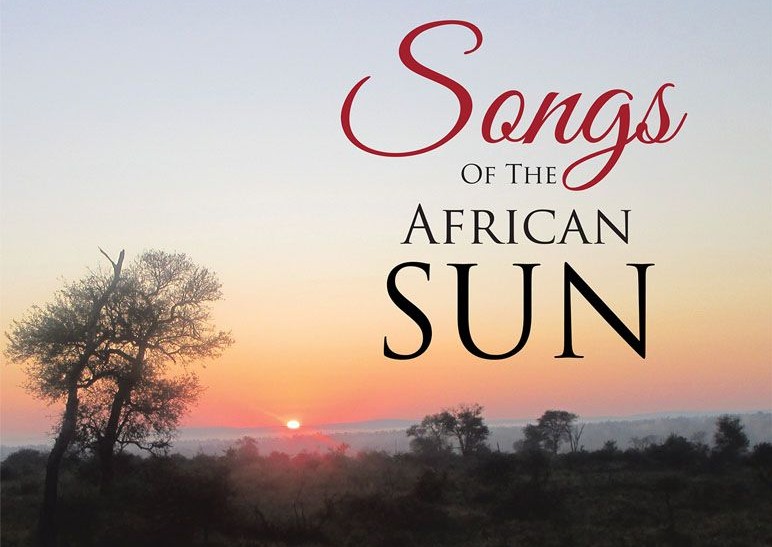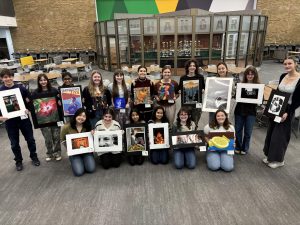Local author shares experiences from Africa
For each of the ten pictures, Driehaus wrote a corresponding poem. One of her pictures is of a massive male lion, lounging by a road that was only feet away from her truck. The poem describes how she and her tour group spent 10 minutes watching the lion until he grew tired of their presence and let out a deep roar.
November 25, 2014
“Never be afraid to travel,” author Cyndy Driehaus said.
Anyone can notice Driehaus’ love of traveling by the way her eyes light up when reflecting on her latest “journey.” Driehaus has been to Spain, Portugal, and even spent several days in the Amazon. Her newest book is a compilation of poems inspired by pictures she took while spending two weeks in Swaziland, Africa.
Swaziland is a tiny country the size of New Jersey in Southern Africa, a peaceful and beautiful place with a mountainous terrain which she said will leave you breathless.
While in Africa, Driehaus captured her entire trip through a small lens so not to forget the amazing experiences she had. Upon returning home, Driehaus was looking through her pictures and fell in love with them, ten specifically. These ten pictures spurred the creation of her book, Songs of the African Sun.
Each picture captures a different animal, scene, or experience that is then elaborated on by Driehaus’ writing. After being back in the states from her trip, “our world” seemed pretty mundane in comparison.
“I remember I couldn’t go to the zoo for the longest time because I’d seen wild African animals running about freely, and I viewed the zoo animals differently.
One of the largest natural preserves on the continent is Kruger national park. The reserve has over 45 million acres of land completely set aside for African safari animals. Tourists are able to drive onto the reserve, but not without being warned that they may not see anything, or that when they do see something, not to provoke it.
Poaching rules are extremely strict on the preservation, and while tour guide do carry guns, they are used more as scare tactics than to harm the animals. That being said, you do not want to mess with a five ton elephant.
“I heard this story of a man who had gotten too close to a male elephant in his car and the elephant placed his foot on the car and gave it a shove. The car flipped over several times. He wasn’t trying to kill the man, but rather warn him and remind him that the man was in elephant territory,” Driehaus said.
Students loved hearing about the country about which they were currently studying. All the English classes have read Chinua Achebe’s “Things Fall Apart” and the AP classes also read Joseph Conrad’s “Heart of Darkness.”
Both novels are set in Africa and both deal with the subject matter of western imperialism. However, the perspectives from which the authors write are unique to their own cultures, as one book is written from the perspective of the colonized and the other from the colonizer.
“The books have been really interesting to read because we do get to employee both perspectives of one issue that changed the world forever and still affects us today. So being about to hear about African from an eye-witness is really a cool opportunity because not many people can say they’ve been to and seen the beauty of Africa,” senior Hannah Brown said.
Now with the first account stories from Driehaus, students have a good grasp on at least a little culture of the massive continent in addition to being inspired to travel.
“There is a quote that I love that says if you haven’t traveled, then you’ve only made it to the first chapter of your own story,” Driehaus said.







